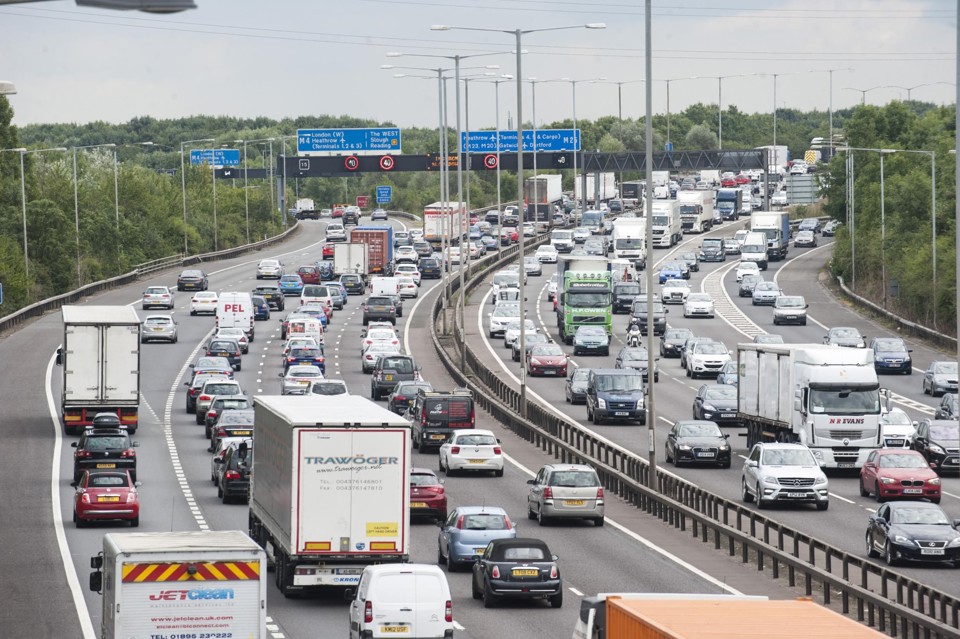Commuters and business travellers are among those less likely to use public transport in the immediate future, as fears over Covid-19 persuade more people to travel by car.
A new survey by independent UK watchdog Transport Focus reveals that 60% of the 2,000 respondents would rather drive than use public transport once travel restrictions are relaxed, raising concerns over emissions, air quality and congestion.
This sentiment was highest among older people, while younger people were more likely to say they would cycle or walk.
However, younger respondents are also more likely to expect to work from home more often in the future, helping to remove some traffic at peak times.
“Habits, once they get changed, are very hard to move back to the old ways,” said Anthony Smith, Transport Focus chief executive. “In the medium to longer-term, it raises the spectre of more congestion and polluted roads as well as posing serious questions for public transport providers – have traditional travel patterns changed forever and how will they draw people back onto public transport?
“Some will surround safety and the reassurance needed from governments and operators, but some may well require more fundamental reform – for instance new fares that better match the mixed work from home and office environment of the future.”
An increase in road traffic combined with investment in more cycle lanes is likely to result in higher levels of congestion, which could itself eventually prompt a move back to public transport.
“There’s a really interesting debate about road space: if you take more space for pedestrians and cyclists and take it away from cars, vans and trucks at the same time as the traffic is going up, there’s going to be a real battle for space which may eventually push people back to public transport,” Smith explained.
Social distancing, sanitisation and facemasks are three crucial safety conditions that will also help to encourage people back to public transport once the lockdown is over.
The impact of Covid-19 on public transport
Almost one-third of respondents to the Transport Focus survey said they would not use public transport again for any reason until they felt safe.
Before the outbreak, 43% nationally used public transport at least a few times a month, while 80% used the car. The proportion using public transport was highest in London, 80%, and among younger people – 61% of those aged 18-24.
However, since the onset of Covid-19, more than 90% have not used public transport: 53% because they have had no reason to; 39% because they were following Government instructions.
In the seven days leading up to the Transport Focus survey, just 6% said they had used public transport.
Hand sanitiser is the minimum expectation of public transport users - 83% said it should be available on vehicles, at stations and at stops – while 62% said they would not use public transport until social distancing measures were in place. A little more than half (51%) wanted to see all passengers required to wear masks.
Even with transport operators going to these lengths, just 24% of people said they would be happy to start travelling by bus, train and tram as soon as restrictions have been lifted.
In reality, it could be “months and months” before people are willing to travel in large numbers on public transport, according to Smith.
“You’ve got to have social distancing, you’ve got to have masks, you’ve got to have sanitisation and you’ve got to have other people behaving,” he said. “It’s quite a tall ask and there’s quite a contradiction in all of this - is social distancing and public transport compatible? Well, only up to a degree; mass transit means mass and it’s quite hard with a two-metre rule in place.”
The need for compromise from all parties
Smith called on government, industry and passengers to work together in “partnership” to resolve the “compromises” caused by social distancing and to provide “honest and realistic” reassurances about safety.
“The industry says we’re going to do X, Y and Z, but it won’t be perfect every time.
"And passengers have to promise to do A, B and C,” he said. “If those two things come together, and the experience on the front line is broadly OK, then confidence will slowly build over the next few weeks.
“Social distancing isn’t going to be enforced by staff or the police, so it’s very much up to passengers to police themselves. The first few weeks are going to be messy.”
Fears are growing about the financial stability of public transport operators. The Government has already taken emergency control of train companies by suspending franchises, effectively re-nationalising the rail network for at least six months, while struggling bus operators have also been promised a £397 million bail out from the public purse.
“The Government moved very quickly to underpin the rail industry,” Smith said. “Outside of London, you’ve got commercially-exposed operators who are receiving some support from the Government. London is slightly different, and TfL will work out its own support package.
“But it’s going to be really, really tough - the markets are just not going to be there in the way they were in the past.”
Video: Stephen Briers interviews Anthony Smith




















Login to comment
Comments
No comments have been made yet.